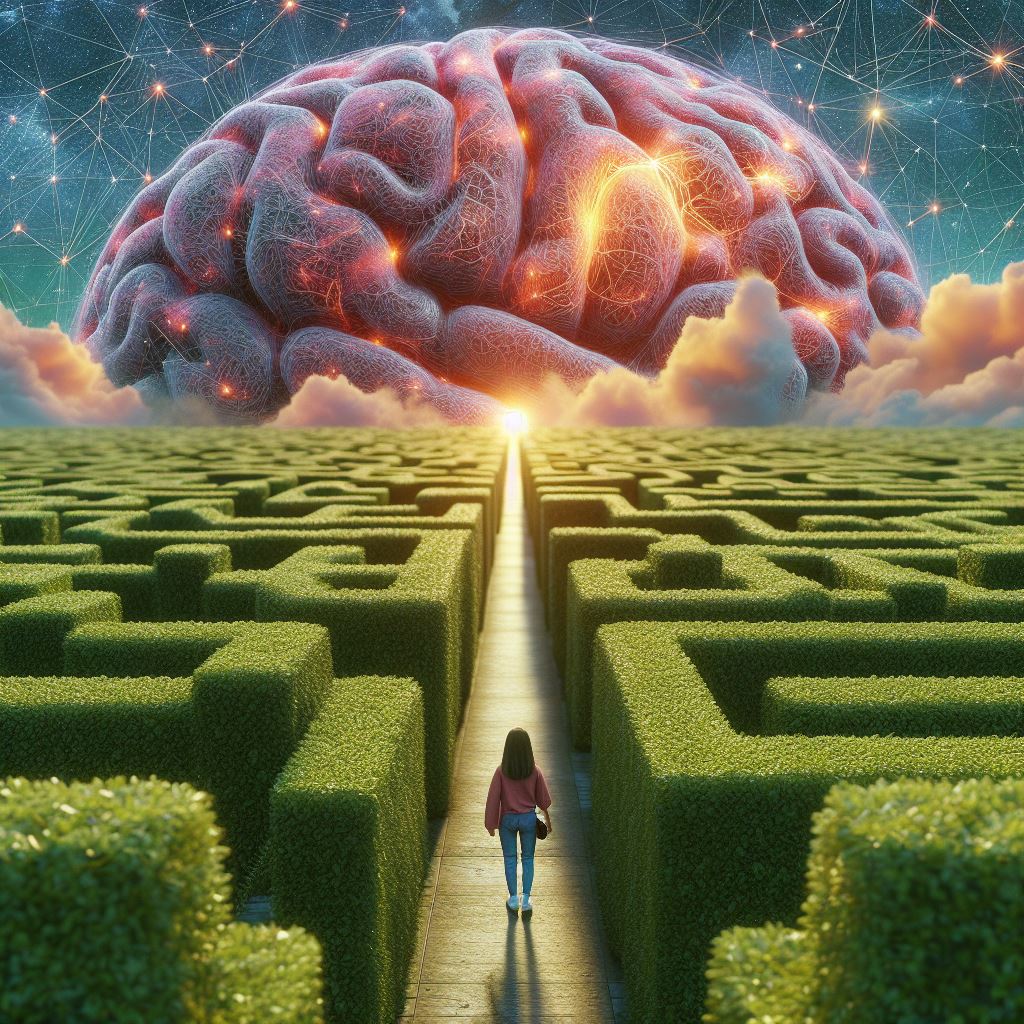In the world of personal development and mental health, there is a method that often skirts the borders of science and mystique: self-hypnosis. It’s a tool that promises profound transformation, tapping into the deepest layers of the mind to influence beliefs and behaviors. But, as we stand on the brink of a technological revolution, it’s worth exploring how artificial intelligence (AI) can refine and amplify the power of self-hypnosis scripts.
Hypnosis, in its traditional form, has been a subject of debate, often seen as a parlor trick or an arcane form of psychotherapy. Yet, numerous studies have validated its efficacy for various purposes, from pain management to behavior change. It operates on a simple principle: by entering a trance-like state, individuals can bypass the critical faculties of the conscious mind, thereby rendering the subconscious more receptive to positive suggestions and new frameworks of thought.
Enter AI, the modern-day technological marvel that has permeated every facet of our lives. AI’s capacity to process and generate language is no less than a paradigm shift in how we interact with the digital realm. Self-hypnosis scripts are prime candidates for the application of AI. By leveraging machine learning algorithms and natural language processing, AI can craft personalized hypnosis scripts with uncanny precision and effectiveness.
The Synergy of AI and Self-Hypnosis
Self-hypnosis requires two core elements: relaxation and suggestion. The former is achieved through a series of techniques that induce a hypnotic state, while the latter involves the delivery of statements or affirmations designed to influence the subconscious mind. The integration of AI into this process has the potential to optimize both elements.
For instance, by analyzing a user’s speech patterns, personal history, and specific goals, AI can tailor suggestions that resonate more deeply with the individual’s psyche. Unlike the generic affirmations found in off-the-shelf hypnosis tracks, AI-generated scripts could address unique fears, desires, and motivations in a manner that speaks directly to the user’s inner self.
AI’s iterative learning capabilities also mean that these scripts can evolve over time. As users interact with the technology, providing feedback on what works and what doesn’t, the AI can adjust the language and structure of the hypnosis sessions to better suit the user’s progress and changing circumstances.
The Boundaries of Belief
One of the most powerful aspects of self-hypnosis is its ability to reframe beliefs. Our beliefs are the bedrock of our thoughts and actions; they are the lens through which we interpret the world. Yet, they are not immutable. Through self-hypnosis, we can reshape our beliefs to overcome limitations and unlock new potential.
AI can elevate this process by identifying patterns in our belief systems that might elude the human eye. By sifting through data points — such as journal entries, social media activity, and spoken words — AI can discern the underlying narratives that govern our self-image and worldview. With this insight, it can construct self-hypnosis scripts that precisely target counterproductive or erroneous beliefs, supplanting them with empowering alternatives.
Ethical Considerations and Personalization
However, with great power comes great responsibility. The use of AI in creating self-hypnosis scripts raises significant ethical considerations. There’s the question of data privacy — ensuring that the intimate details of one’s mind and behavior are protected. There’s also the need to guard against potential misuse, such as the insertion of harmful suggestions or the manipulation of individuals’ thoughts without their fully informed consent.
To address these concerns, transparency and user control are paramount. Individuals must have clear insights into how their data is used and the ability to fine-tune or veto aspects of the AI-generated content. Moreover, the AI must be designed with safeguards that prevent the creation of unethical or psychologically damaging content.
The Prospects of Enhanced Self-Improvement
The potential benefits of AI-generated self-hypnosis scripts are staggering. Imagine a world where individuals can access highly personalized tools for self-improvement at their fingertips. Weight loss, smoking cessation, stress management — these are just the tip of the iceberg when it comes to the applications of this technology.
Moreover, self-hypnosis scripts could become more dynamic, adapting not just to the user’s explicit goals but also to subtle shifts in mood, motivation, and personal context. As users grow and change, so too would the hypnosis sessions, providing a continuously relevant and effective form of self-guided therapy.
The Road Ahead
As we forge ahead into this brave new world, the convergence of AI and self-hypnosis holds promise for a revolution in personal development. It could democratize access to powerful tools for change, enabling more people to unlock the full potential of their minds.
The journey, of course, will not be without its challenges. Balancing the potential of this technology with the ethical considerations it raises will be a delicate endeavor. Nevertheless, as we navigate this terrain, we must not lose sight of the profound impact that AI-crafted self-hypnosis scripts could have on the well-being and empowerment of individuals across the globe.
In conclusion, the integration of AI into the creation of self-hypnosis scripts is a fascinating prospect that beckons with the allure of deep personal transformation. As we stand on the precipice of this technological evolution, the future of self-improvement and mental wellness looks to be as intriguing as it is hopeful. With careful stewardship and a commitment to ethical principles, AI could very well become a cornerstone in the edifice of human potential.
